10 Essential Criterion Collection Releases
While I can't claim to have seen the entire Criterion library, here are 10 from my personal collection that have meant the most to me as a fan of the series.
One ground rule: only a single film per director. I also didn't include any Kurosawa or Fellini, for which I will no doubt be flogged with unsold copies of Berlin Alexanderplatz...
1. Fanny and Alexander Ingmar Bergman (1983, Sweden)
You could fill a Criterion top 10 with Ingmar Bergman alone. But even considering the master’s tremendous output, Fanny and Alexander is a singular feat. It’s not just a Bergman film, it’s every Bergman film: childhood and religion and art and family and magic (and even a fart joke) rolled into an overwhelmingly joyous 5 1/2 hour-package, his entire career encapsulated in the tale of a bustling theatrical clan at the turn of the century. Fanny and Alexander is a lot of things, but for me it’s a reminder that we’re never truly alone, a warm but unsentimental Christmas fable in which Bergman’s “little world” reflects the bigger one all around us.
2. Broadcast News James L. Brooks (1987, US)
It’s rare to find an American comedy as literate, aware, and breathtakingly deep as the material James L. Brooks was mining in his prime. Like Billy Wilder’s The Apartment, Brooks is hyper attuned to even the subtlest human foibles and doesn’t seem to care much for likability or conventional plot. Broadcast News works on multiple levels: a spiraling look at the fading news industry, a study of relationships that understands how rarely adults behave like adults, and a shockingly prescient takedown of the country’s constantly lowering standards. Bonus points for Holly Hunter’s pre-Hillary career woman, who knows all too well that the smartest person in the room is often the most unfulfilled.
3. Brief Encounter David Lean (1945, UK)
Lean may be remembered for his overlong Hollywood epics (cough cough, Lawrence of Arabia), but the sparseness with which he executes Noel Coward’s story of doomed, accidental love is almost unnerving. Brief Encounter runs a scant 86 minutes and every moment lingers, particularly when Lean’s camera hones in on Celia Johnson. As the female half of the titular affair, Johnson radiates so much melancholy she almost burns the screen. Along with Trevor Howard as her beloved, she makes her character’s inner sadness exhilarating — as if for one short moment, the couple has discovered what it means to be truly alive.
4. In the Mood for Love Wong kar-wai (2000, Hong Kong)
Cinema doesn’t get more revolutionary than Wong kar-wai’s aching romance — a barn-burner that unfolds slowly, every moment scorching with unconsummated heat. Wong playfully toys with space and time, so the entire film takes on the feeling of a hazy recollection. As Tony Leung’s Mr. Chow and Maggie Cheung’s Mrs. Chan wordlessly pass each other at the local noodle stand, the frame pulses with longing. That said, Wong never fetishizes their silent courtship. His film’s luscious period style is the physical manifestation of the emotions these lovers wouldn’t dare express.
5. Written on the Wind Douglas Sirk (1956, US)
Seen as a mainstream hack at the time, a celebrated auteur now, Douglas Sirk was cranking out masterpieces in the mid-’50s like nobody’s business. So why Written on the Wind? It may be Sirk’s most potent, stinging work — and not just for the liquor consumed by its central foursome: Rock Hudson, Lauren Bacall, a tipsy, emasculated Robert Stack, and the unforgettable Dorothy Malone, who earned an Oscar for her performance as Marylee, the thirsty nympho who pines for Hudson and whose gyrating sexual energy indirectly causes her father’s death. Overflowing with lush, smoldering color and phallic oil derricks, they sure don’t make ’em like this anymore.
6. All That Jazz Bob Fosse (1979, US)
A wealthy, famous director, heralded as a genius, makes a self-portrait that simultaneously celebrates and condemns his masochistic devotion to… well, himself. Inspired by Fellini’s 8 1/2, Fosse dials the spectacle up a few notches. The result is a love letter written with a poison pen, every shot dripping with excess and the self-absorbed glee of a filmmaker who can’t believe he’s getting away with this. Did I mention that in the last 10 minutes, Fosse stages his own funeral as a neon-drenched musical number? Watch this one on a giant screen with the sound system cranked LOUD.
7. Sweet Smell of Success Alexander Mackendrick (1957, US)
In its most immortal line, J.J. Hunsecker (Burt Lancaster’s Lucifer-as-New-York-columnist) calls Tony Curtis’s lowly press agent Sidney Falco a “cookie full of arsenic.” That’s a good approximation of the movie, which shoots swanky nightclubs in stark black & white and fires off dialogue that doesn’t bother to leave its bitterness for the aftertaste. Lancaster and Curtis were never better, but the actual stars are Clifford Odets and Ernest Lehman’s script and ’50s New York itself, the city’s grubbiest social-climbers personified by Elmer Bernstein’s jazzy score. While Sweet Smell doesn't quite classify as noir, this is perhaps the darkest, most brutal film where nobody gets killed.
8. Au Revoir Les Enfants Louis Malle (1987, France)
Louis Malle is one of history’s most underrated directors, perhaps done in by his trademark versatility. Malle’s best work comes when he reflects inward, as in this adolescent memoir, told with matter-of-fact realness and inspired by his experiences at a French boarding school during WWII. It begins with a standard set-up (schoolyard rivalry, a new student with a secret) but quickly turns harrowing, building to a climax that’s both inevitable and surprising in its economy. What makes Malle a master is that you never feel his hand.
9. Make Way for Tomorrow Leo McCarey (1937, US)
A little-seen humanist masterwork that deserves a place among the finest American films ever made. As an elderly couple forced to separate during the Depression, Victor Moore and Beulah Bondi give endearingly naturalistic performances, woven tight with Leo McCarey’s delicate mise-en-scène. The result is almost unspeakably powerful, and it’s best to go in knowing as little as possible. One of the most unfairly neglected films released by Criterion, eloquently summed up by Orson Welles's famous remark: "It could make a stone cry."
10. Yi Yi Edward Yang (2000, Taiwan)
Yang’s four-hour opus A Brighter Summer Day almost made the list but I had to go with this one, a deceptively simple family saga that chronicles the travails of a middle-class Taipei family over the course of a year. Fair warning: this is the kind of movie where very little actually happens. Nonetheless, Yang’s lack of plot reveals an uncommon breadth and emotional scope. Despite a lengthy running time, Yi Yi doesn’t drag for a minute. Yang’s fluidity ensures you never want it to end.
Fuck It! Here's Five More...
11. Rosemary’s Baby Roman Polanski (1968, US)
A year before his pregnant wife Sharon Tate and a group of friends were slaughtered by the Manson Family, Roman Polanski delivered what may be the ultimate paranoid thriller: a witchy horror romp that traffics in satanism, the Dakota Apartments, unemployed actors, and bad milkshakes. While it’s sure to be imitated for decades to come, Polanski’s adaptation of Ira Levin’s best-selling potboiler feels both timeless and creepily of the moment — with no shortage of help from Mia Farrow’s startling, enervating performance as Rosemary, the willowy ’60s heroine and antichrist-spawning icon. Get ready for some devil worship and chocolate mousse: this one’s a mother.
12. Playtime Jacques Tati (1967, France)
If I could watch one classic projected on film, I'd pick a 70mm print of Jacques Tati's Playtime, a raucous and always timely comedy in which Tati himself plays Monsieur Hulot, a perpetually confused bumbler in a futuristic world full of technological upheaval. Tati's slapstick-without-the-shtick is joyous and expertly staged, never more so than in a climactic restaurant scene that straight up slays no matter how many times I see it. Earlier Hulot films like Mon Oncle might be more disciplined, but it's Tati's ambition that gives Playtime a visual richness that's impossible to match.
13. M Fritz Lang (1931, Germany)
I first saw M on a blurry, badly subtitled VHS and even then it was a knockout. More than just an exercise in German expressionism, Fritz Lang's unsettling and suspenseful chiller follows a child murderer (Peter Lorre) as he's hunted by a vigilante mob. Lorre may be known as a character actor, but his round, bug-eyed face gives off an eerie charisma that completely carries the film. Lang weaves in social commentary that thankfully doesn't detract from the thrills — in these shadowy sewers, we never lose sight of the broken man beneath the monster.
14. The Life and Death of Colonel Blimp Michael Powell & Emeric Pressburger (1943, UK)
There are few films as uncategorizable as this nearly 3-hour epic chronicling 40 years in the life of a British officer. It's a military saga that doesn't get bogged down in the machinations of war, a gentle character study without a huge emotional payoff, and a story of lost love and friendship that rejects melodrama. Colonel Blimp has a stiff-upper-lip-ness that may put some viewers off; it's not as juicy as Powell & Pressburger's more hypnotic Technicolor films like The Red Shoes and Black Narcissus. But there's a cumulative humanity that lingers long after it ends, with a dynamite trio of performances at the center: Roger Livesey as the colonel Clive Candy, Anton Walbrook as his German nemesis-turned-unlikely BFF, and Deborah Kerr in a triple role as the ladies they meet along the way.
15. Sullivan’s Travels Preston Sturges (1941, US)
Sturges’s early years as a writer/director were ridiculously prolific, an embarrassment of riches that claimed some of the finest filmmaking to come out of the studio system. This one resonates most, perhaps because of its all-too-meta plot: John Sullivan (Joel McCrea), director of popular low-brow comedies, retreats from society to learn about the common man and in turn, finds deeper meaning in the pratfalls. A less shrewd filmmaker wouldn’t have been able to pull this off, but Sturges succeeds largely thanks to McCrea’s everyman charm and his own scalpel-like skewering of the film industry. This script's uncanny self-awareness is the envy of every modern multi-hyphenate from Alexander Payne to Adam McKay to Judd Apatow.
Well, that's it! If time allows, I'll be back next week with a top 10 (or 15) Criterion wish list — one of which might feature Nicolas Cage and a hive of angry bees...
Well, that's it! If time allows, I'll be back next week with a top 10 (or 15) Criterion wish list — one of which might feature Nicolas Cage and a hive of angry bees...
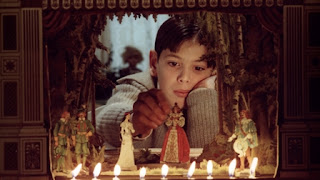



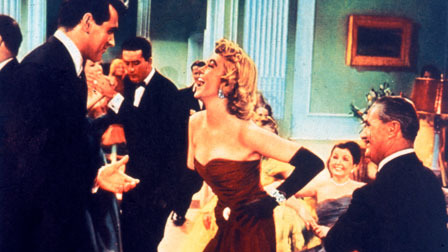
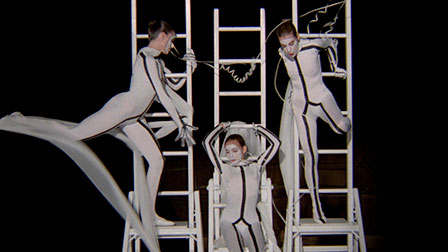

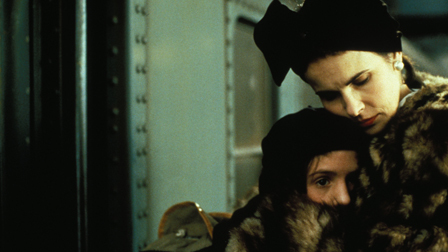


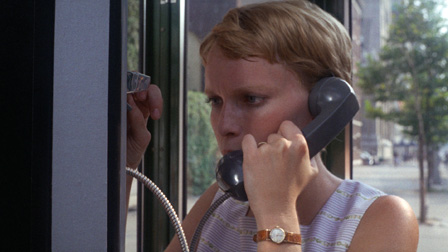
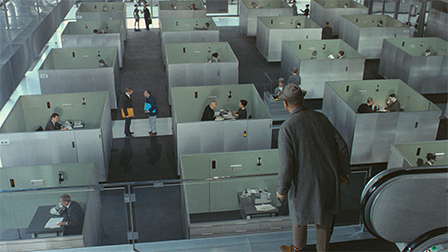


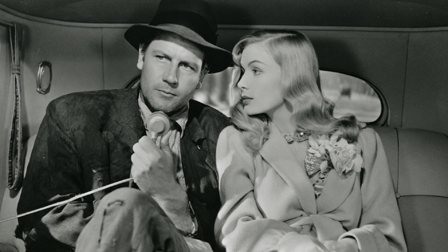
Comments
Post a Comment